What is it about Nigeria that seems to prepare its people to thrive abroad? So many Nigerians who leave these shores are excelling in their adopted countries.
Nigeria has a unique way of shaping resilience, adaptability, and ambition in its people. Growing up in Nigeria teaches you to navigate complexity – whether it’s managing limited resources, dealing with diversity across more than 250 ethnic groups, or finding creative solutions in an environment that’s often unpredictable. These experiences build problem-solvers and innovators. Nigeria instills in you a spirit of hustle and optimism. If you can make things work back home in challenging circumstances, you approach opportunities abroad with determination and confidence. That combination of resilience, ambition, and adaptability is what makes Nigerians thrive wherever we go.
Nigerians in the diaspora, even the ones who have never set foot on these shores but have Nigerian heritage have become increasingly patriotic and are quick to identify as Nigerians. This is very unlike the situation some years ago. Why do you think this is?
There are several reasons behind this shift. Success stories from Nigerians around the world have changed the narrative. Whether it’s in medicine, technology, business, sports, or entertainment, Nigerians are making remarkable contributions globally. These achievements have redefined what it means to be Nigerian and inspired a sense of pride in that identity. Also, patriotism grows when identity is celebrated rather than hidden. For years, there was a stigma attached to being African in some places. Today, African excellence—and especially Nigerian excellence—is celebrated. People want to own that proudly because it signals resilience, ambition, and a rich cultural heritage.
Many of such Nigerians in the diaspora are now searching out ways of giving back. Some are even relocating to Nigeria as we notice the -‘Japada’_ phenomenon gradually gaining traction. Others continue to live and work abroad but establish commercial entities here, while others simply contribute their professional expertise. In what ways do you give back or plan to give back?
I assist non-profit organizations across Africa by providing training in resource mobilization, financial management, and more. I also mentor and support a few young individuals in Nigeria regarding their career and academic journeys.

You have been living abroad for about 10 years now. Do you still see Nigeria as home?
Nigeria has always been and will continue to be my home. I return home as often as feasible, considering my work schedule.
In your journey and transitioning within just a decade of leaving Nigeria for Canada, you’ve risen to serve at a NATO command centre. Can you share the most defining moments of that journey, and how your Nigerian roots shaped your career path?
My journey is truly a story of identity, resilience, and opportunity. One of the most defining moments came the day I received my Canadian citizenship. It wasn’t just a passport; it was a gateway to opportunities I could never have imagined—including the privilege of working at NATO. But that moment didn’t happen overnight—it was built on years of hard work, adaptability, and determination.
Coming from Nigeria, I carried with me a mindset shaped by resilience and ambition. Nigeria is a place that teaches you to dream big, work hard, and stay resourceful despite challenges. Those values became the foundation of everything I did in Canada. Whether it was requalifying my credentials, navigating a new culture, or proving myself in competitive environments, I leaned on that Nigerian grit. Another defining moment was embracing the diversity of my identity. Being Canadian gave me access, but being Nigerian gave me strength. The ability to adapt, think on my feet, and lead in uncertainty—that’s something my upbringing instilled in me. In a NATO environment, where collaboration, strategic thinking, and cultural awareness are critical, those traits became my superpower. So, to me, the journey is about two homes shaping one person: Canada gave me the platform, but Nigeria gave me the tools to excel on that platform.
Through representation and identity, how does it feel to be a Nigerian — and more broadly, an African — serving in such a high-level international security structure, and what message do you think your story sends to young Africans at home and in the diaspora?
It’s an incredible honour and a profound responsibility, serving in a high-level international security structure like NATO as a Canadian-Nigerian. It means carrying more than just my ambitions. It means representing a continent that is often underestimated, and proving that excellence knows no borders.
How does it feel? Honestly, it feels humbling yet empowering. Every time I walk into a room, I know I bring a perspective that is unique, shaped by the resilience, adaptability, and resourcefulness that come from my African roots. I also feel a deep sense of duty to show that Africans can contribute meaningfully to global peace, security, and governance at the very highest levels.
The message my story sends to young Africans—both at home and in the diaspora—is simple but powerful: your identity is not a limitation; it’s your strength. The values, creativity, and determination that come from our background are assets the world needs. If you dream big, invest in your growth, and stay true to who you are, there is no global platform too big for you to stand on. Africa has so much talent, so much promise. If my journey shows anything, it’s that we are not just participants in the global conversation—we can be leaders shaping that conversation.
What are the broader implications for Africa? Do you see opportunities for African talent to contribute more to global institutions like NATO, the UN, or other international command structures? What can governments back home do to prepare their youth for such roles?
The world is becoming more interconnected, and global institutions like NATO, the UN, and others need diverse perspectives to address complex challenges. Africans bring unique problem-solving skills, adaptability, and cultural intelligence—all critical in today’s security and diplomatic environments.
Yes, I see opportunities for African talent to contribute more, but it requires deliberate preparation. These roles demand not just technical expertise, but also leadership, language skills, cross-cultural competence, and a strong understanding of international systems. Africans have the talent, but we need to bridge the gap between potential and readiness. What can governments do? Invest in Education and Skills Development, create global exposure Opportunities and build Institutional Support and Networks mentorship.
Ultimately, the goal should be to position Africa not just as a beneficiary of global policies, but as a contributor to shaping them. When Africans sit at the table, the continent’s interests are better represented, and global decisions become truly inclusive.
Concerning your personal vision and legacy, looking forward, what impact do you hope to make through your role, and how do you intend to continue bridging your African identity with your global responsibilities?
For me, this journey has never been about just holding a position—it’s about purpose and impact. My personal vision is to use this platform to demonstrate that leadership and excellence are not tied to geography; they’re tied to values, preparation, and integrity.
In terms of impact, I want to contribute to shaping systems that make global security structures more inclusive and forward-thinking. That means advocating for diversity—not as a checkbox, but as a strategic advantage—because different perspectives create better solutions. I also want to create pathways for others, especially young Africans, to see that this is possible and know what steps they can take to get here. As for bridging my African identity with my global responsibilities, I see them as complementary, not conflicting. My African roots keep me grounded—they remind me why representation matters and why excellence must be non-negotiable. At the same time, my global role pushes me to lead with collaboration and empathy across cultures. I intend to continue mentoring, speaking, and building networks that connect African talent to international opportunities
You have had an impressive career starting from Nigeria and then becoming a Vice-President of a St. Mary’s University, Halifax in Canada. Now, you are a Director of Finance on the global stage at NATO. What is next after this?
I don’t see this as a ladder with an endpoint; I see it as a journey of impact. What’s next for me isn’t just about titles—it’s about influence, mentorship, and shaping systems that make opportunities accessible for others.
__________________
Ayo Daniel Makanjuola is a seasoned Chief Financial Officer with over 15 years of experience in driving strategic fiscal management and business leadership in diverse industries. He has a wealth of knowledge and expertise in creating and executing financial plans that align with corporate goals, ensuring robust financial health, and driving efficiency and growth. Ayo’s career has been characterized by a deep commitment to excellence, focusing on delivering strategic financial guidance and fostering a culture of financial accountability.
With a proven track record in financial planning, reporting, budgeting, corporate strategy, stakeholder engagement, and project management, he has consistently played a pivotal role in catalyzing growth and optimizing financial performance across various organizations.
Ayo’s leadership style emphasizes collaboration, mentorship, and cross-functional coordination. He fosters a culture of continuous improvement and professional growth. He also excels at engaging with internal and external stakeholders, including board members and government bodies to ensure transparent communication and alignment with organizational objectives.
As a board member at YMCA, CPA Nova Scotia, NSCC Foundation, and the Canadian Feed The Children, he provides financial, strategic, and governance insights to drive sustainable growth and mission fulfillment.
He is passionate about leveraging his extensive experience in finance to drive meaningful change in organizations. He is also committed to staying at the forefront of financial innovation and leadership, continually seeking opportunities to enhance organizational financial health and contribute to strategic decision-making.
In his new designation, Ayo Daniel Makanjuola is the Director of Finance (Financial Controller) at NATO Allied Land Command Izmir. On order, LANDCOM serves as LCC in support of JFCs and as a CFLCC to provide theatre-wide domain expertise to SACEUR. As SACEUR’s principal land advisor, LANDCOM coordinates AOR-wide activities to effectively deter Russia and Terror Groups and ensure a trained, ready, and lethal land force for NATO.



































































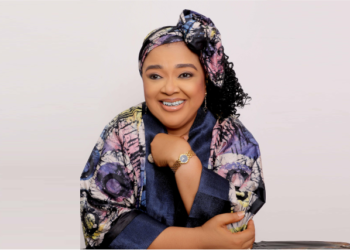
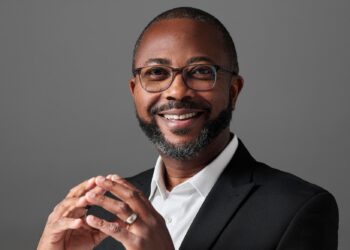
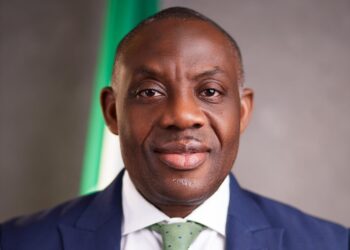
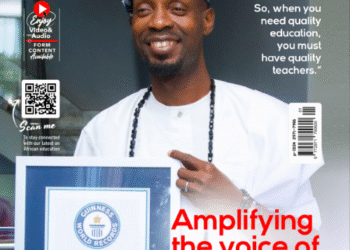

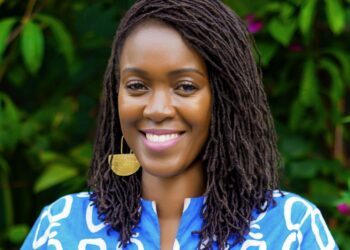










 EduTimes Africa, a product of Education Times Africa, is a magazine publication that aims to lend its support to close the yawning gap in Africa's educational development.
EduTimes Africa, a product of Education Times Africa, is a magazine publication that aims to lend its support to close the yawning gap in Africa's educational development.